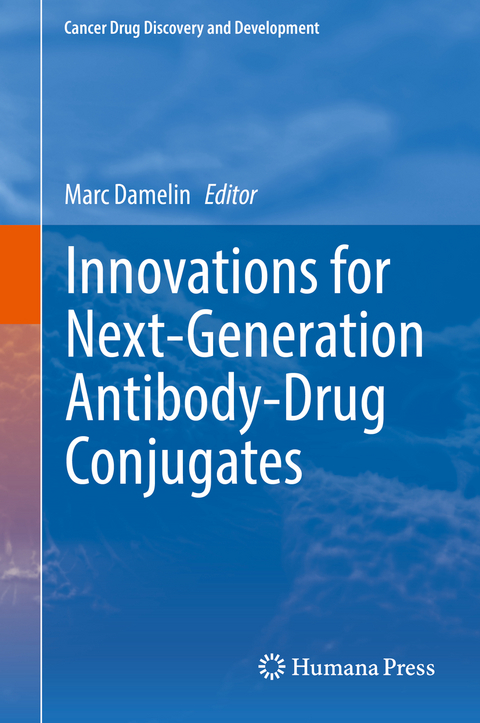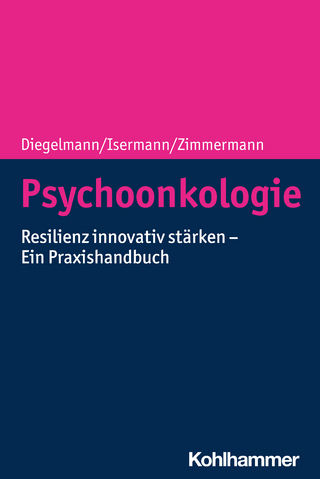
Innovations for Next-Generation Antibody-Drug Conjugates
Springer International Publishing (Verlag)
978-3-319-78153-2 (ISBN)
Antibody-drug conjugates (ADCs) stand at the verge of a transformation. Scores of clinical programs have yielded only a few regulatory approvals, but a wave of technological innovation now empowers us to overcome past technical challenges. This volume focuses on the next generation of ADCs and the innovations that will enable them. The book inspires the future by integrating the field's history with novel strategies and cutting-edge technologies. While the book primarily addresses ADCs for solid tumors, the last chapter explores the emerging interest in using ADCs to treat other diseases.
The therapeutic rationale of ADCs is strong: to direct small molecules to the desired site of action (and away from normal tissues) by conjugation to antibodies or other targeting moieties. However, the combination of small and large molecules imposes deep complexity to lead optimization, pharmacokinetics, toxicology, analytics and manufacturing. The field has made significant advances in all of these areas by improving target selection, ADC design, manufacturing methods and clinical strategies. These innovations will inspire and educate scientists who are designing next-generation ADCs with the potential to transform the lives of patients.
Marc Damelin is Senior Director, Biology at Mersana Therapeutics in Cambridge, Massachusetts. His group is responsible for the discovery of therapeutic ADCs enabled by Mersana's proprietary linker-payload-scaffold technologies. Prior, Marc spent 10 years at Pfizer Inc. in the Oncology Research Unit, where he led ADC discovery teams and ultimately oversaw the ADC portfolio. He received his Ph.D. in Biophysics from Harvard University and conducted postdoctoral research at Columbia University Medical School as a Fellow of the Damon Runyon Cancer Research Foundation.
Chapter 1 Introduction: Motivations for Next-Generation ADCs.- Chapter 2 Combining ADCs with Immuno-oncology Agents.- Chapter 3 Improving the Safety Profile of ADCs.- Chapter 4 Utility of PK-PD Modeling and Simulation to Improve Decision Making for Antibody-Drug Conjugate Development.- Chapter 5 Regulatory Considerations and Companion Diagnostics.- Chapter 6 ADC Process Development and Manufacturing.- Chapter 7 HER2-Targeted ADCs: At the forefront of ADC technology development.- Chapter 8 Next generation payloads for ADCs.- Chapter 9 Delivering more payload: High DAR ADCs.- Chapter 10 Site-Specific Antibody Drug Conjugates.- Chapter 11 Bispecific and Biparatopic Antibody-Drug Conjugates.- Chapter 12 drug conjugates to the tumor microenvironment: Probody Drug Conjugates.- Chapter 13 Antibody-Drug Conjugates: Targeting the Tumor Microenvironment.- Chapter 14 Next Horizons: ADCs Beyond Oncology.
| Erscheinungsdatum | 24.06.2018 |
|---|---|
| Reihe/Serie | Cancer Drug Discovery and Development |
| Zusatzinfo | VIII, 357 p. 70 illus., 52 illus. in color. |
| Verlagsort | Cham |
| Sprache | englisch |
| Maße | 155 x 235 mm |
| Gewicht | 713 g |
| Themenwelt | Medizin / Pharmazie ► Medizinische Fachgebiete ► Onkologie |
| Medizin / Pharmazie ► Studium | |
| Naturwissenschaften ► Biologie ► Genetik / Molekularbiologie | |
| Schlagworte | antibody-drug conjugates • Conjugation • Immuno-Oncology • Oncology • pharmacokinetics, |
| ISBN-10 | 3-319-78153-7 / 3319781537 |
| ISBN-13 | 978-3-319-78153-2 / 9783319781532 |
| Zustand | Neuware |
| Haben Sie eine Frage zum Produkt? |
aus dem Bereich


